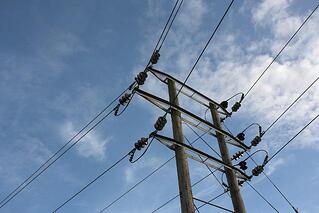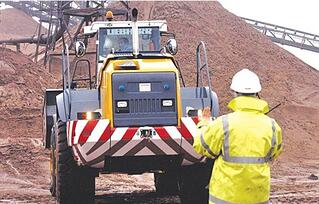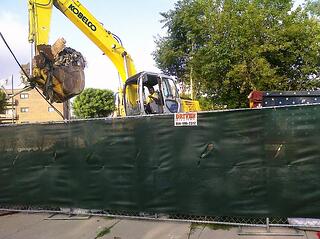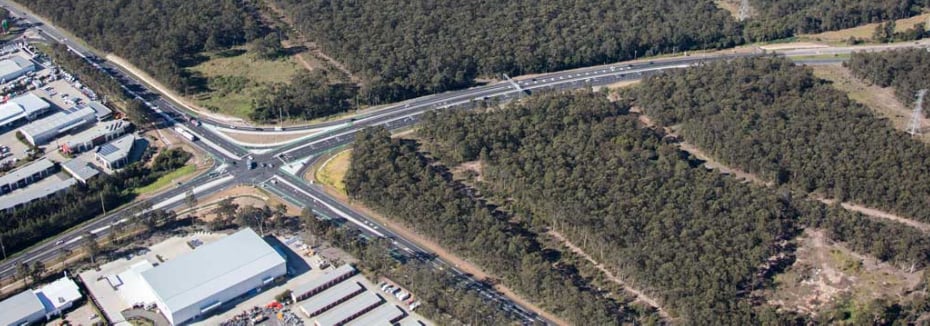Operating mobile plant comes with high levels of risk and as the supplier or operator, it's your responsibility to be aware of these risks and how to eliminate or minimise them. So while you may think you're on top of all requirements for the onsite operation of your plant, it's a beneficial habit to regularly check in with regulations and implement any changes. To help you cover your bases, we've listed a few common questions that often come up between owners and operators.
How close can mobile plant work to power lines?
This can vary depending on the power line and all operators must be aware of the power line's Danger Zone. 
- A live insulated overhead power line or aerial bundled conductor line of a voltage of no more than 1,000v Danger Zone = Within 0.5m
- A live uninsulated overhead power line of a voltage of no more than 1,000v
Danger Zone = Within 1.0m - A live overhead power line, whether insulated or not, of a voltage exceeding 1,000v but no more than 33,000v Danger Zone = Within 3.0m
- A live overhead power line, whether insulated or not, of a voltage exceeding 33,000v Danger Zone = Within 6.0m
Working within these Danger Zones should only be done if the power lines have been insulated and all necessary safety precautions are taken to ensure the safety of all workers on site.
Do I have to use the seat belt when operating mobile plant?
Yes, the operator and any passengers must wear the seat belts which have been fitted to the mobile plant. Everyone inside or on the plant should be seated and strapped in throughout the duration of works and any other movement.
 Do we need to fit reversing alarms to mobile plant?
Do we need to fit reversing alarms to mobile plant?
A suitable control measure to avoid hitting or running over any onsite workers and all other pedestrians would be to fit a reversing alarm to all mobile plant. Either a reversing alarm or flashing light should be fitted to plant in order to warn pedestrians of reversing plant.
Does mobile plant need to be fitted with roll-over protective structure (ROPS)?
If the plant is presented with any risk of overturning, then plant must be fitted with ROPS, restraining devices and seat belts. Factors which increase the risk of overturning plant are:
- Slopping terrains
- Rough, Slick or muddy surfaces
- Towing or pulling objects
- Operating near holes, ditches or embankments
When does mobile plant need to be fitted with a falling objects structure (FOPS)?
If the mobile plant is working in conditions which present the risk of falling objects, then the plant should be designed and fitted with a falling objects protective structure as well as seat belts.
How can I prevent mobile plant from running over pedestrians? 
This is of high priority, the risk involved with mobile plant and pedestrians can become a problem if not adequately planned for and controlled. Methods of controlling this risk are:
- Separating pedestrians from where plant is operating
- Traffic management that controls the movement of plant and pedestrians
- Communication systems between plant operators and pedestrians
- Spotters can be used to control traffic in localised areas
- Personal protective equipment such as high visibility vests
Operating mobile plant comes with numerous risk and factors to consider to make sure you're in control and avoid any potential for hazards. Getting your plant on site can be difficult if you haven't covered all your bases. Knowing the answers to these questions is a step in the right direction, as reducing risk will help you maintain your reputation as well as avoid the repurcussions of serious incidents. To further improve the compliance of your plant, we've created a checklist to help increase the chances of your plant being approved for onsite use.

Recent Articles
Fortescue's 133MW Nullagine Wind Project now under construction
Construction is now underway on the Nullagine Wind Project in Western Australia, which is part of Fortescue’s plan to reach its Real Zero target.
Significant milestone reached on M1 Pacific Motorway extension project
The M1 Pacific Motorway extension to Raymond Terrace project in New South Wales has reached a significant milestone with the final pile driven to complete foundation works on the 11 new bridges being built between Black Holl and Raymond Terrace.
Preferred delivery partners chosen for two hospital projects in WA
Preferred alliance delivery partners have been announced to progress design and development of two new healthcare facilities in Western Australia.
Get the latest project news
- updates on Australia's pipeline of state and federal projects
- fresh contract awards from major contractors and builders
If you're looking to contact us about other matters, please contact us.






